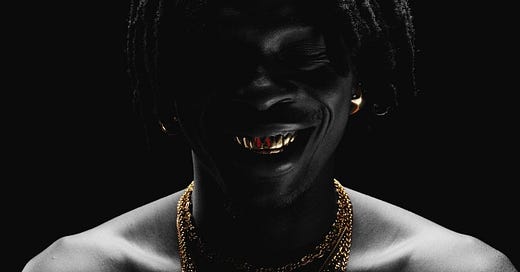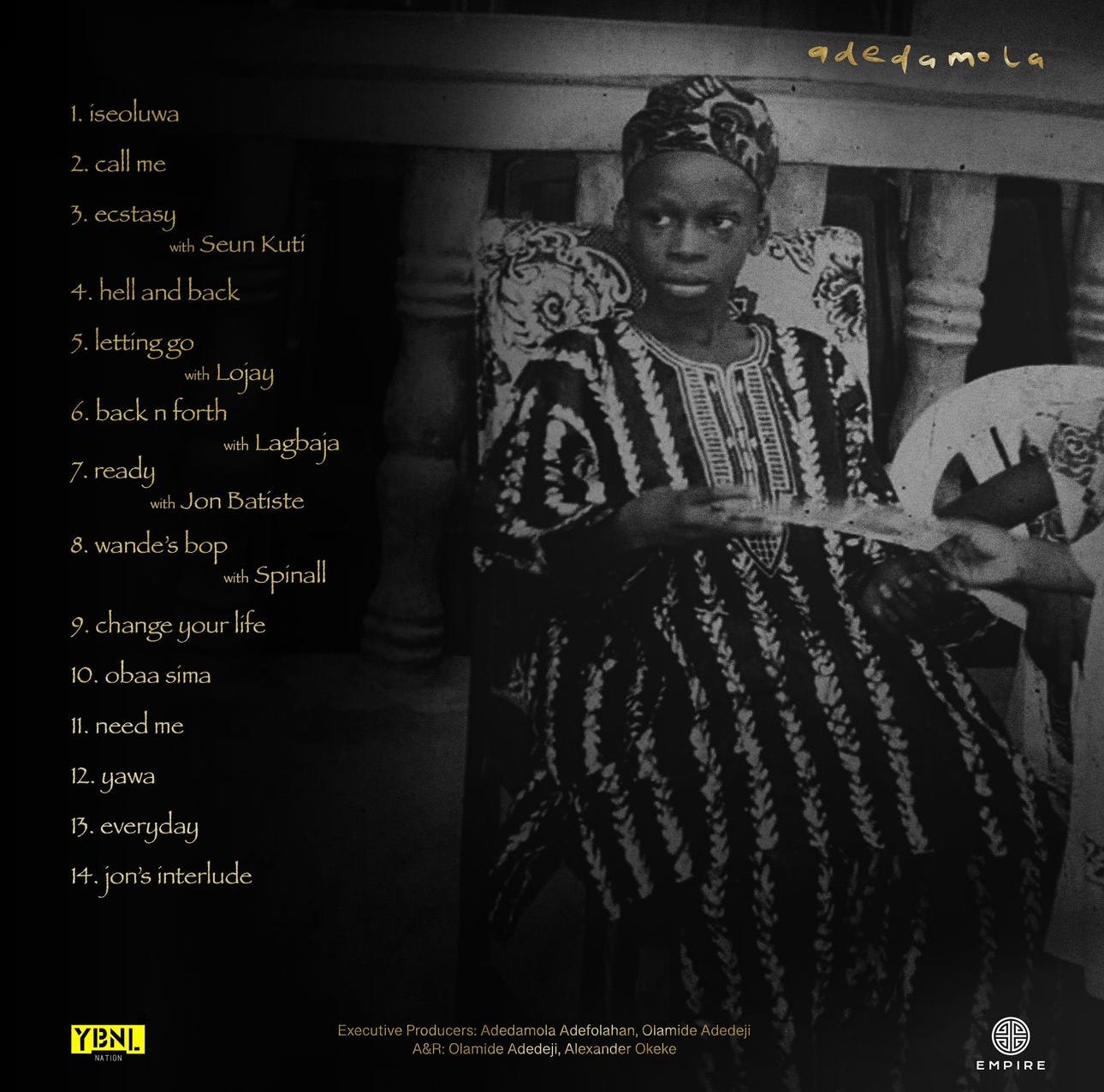First, a warning. This is not for you if you don’t care for a first read from quick listens. Come back two Eke market days from now. Those who care for a tentative dialogue on new music, particularly Fireboy DML’s fourth LP, adedamola, are welcome, but please consider upgrading to a paid subscription.
Playboy was a tough act to follow. For Fireboy to have broken the jinx of his promising debut and overcome his sophomore slump on Apollo, he deserves more than accolades. He has been particularly singular in his vision. His musicianship has been consistent, swinging on the axes of his preference; it is a soul-leaning R&B that is decidedly Nigerian, Afrobeats in its worldview, language and feel. His contract with us was sealed when we first heard ‘Jealous’, a love song spun with local fabric. It is like the adire-wearing Adekunle Gold but in wholesome music.
Fireboy’s indigenizing of an originally American Black Diasporan genre was not entirely a new thing. His north pole is the legend Wande Coal, who is double-minded about his status. Wande Coal comes from the Lagos suburb, Mushin, where a large share of Nigeria’s most outstanding musicians lived. It is from the working-class fabric that Wande Coal arrived with a fusion of his influences, Yoruba traditional music like Fuji and Juju blended intricately with Black Diaspora music like hip-hop and R&B. Before Wande Coal, there was Paul Play Dairo, who compartmentalized his practice of R&B and Juju/Highlife. In Wande Coal’s universe, there were no compartments; it was all a continuum.
Fireboy ran with this. On the irreverently playful ‘Peru’ and the songwriting masterclass, ‘Bandana’, we have a shy Faulknerian moment (this continues on adedamola with the lowercase styling). Fireboy modestly disclaims that he may not be an OG, but, at least, people know him. 2023 was a quiet year for him, with a sprinkle of singles. He was also mostly quiet this year until his new album release date, publicized with the beguiling gold-themed cover art photography.
A few listens later, adedamola might be his most even, refined and intentionally global album. It is a measured blend of the old guards of Nigerian music (apala, highlife, juju, fuji, afrobeat), collaboration with American heavyweights (read Jon Batiste) and reliably standard Fireboy DML. So far, there have been no fireworks moments like on Playboy. Instead of incendiary and effusive pops, you have an even-tempered album with high production values and impeccable A&R. Very West-looking but also paying respect to Nigerian tradition.
Placing the masked one, Lagbaja, on the record, ‘back and forth’ is a full circle of sorts. Fireboy was born in 1996, the same year Lagbaja released his iconic album, Cest Un African Thing, with enduring classics like ‘Coolu Temper’ and ‘Africalypso’. These tunes tickled the precariously placed Lagos middle-class struggling economically through a tightening military dictatorship.
Fireboy’s ‘Iseoluwa’ has been accused of sounding like Asake’s ‘Suru’, but those accusing Fireboy of appropriating from Asake have assigned a misdiagnosis reminiscent of the Yoruba proverb, amúkùń erù é wó, òkè lè ń wò e ò wò'sàlè. ‘Iseoluwa’ was taken from Asake’s source, Apala maestro Musuliu Haruna Ishola’s iconic 2000 album, Soyoyo.
‘Wande’s Bop’ is my favourite record at present. It is a YBNL tribute to Wande Coal like ‘Kpe Paso’, Olamide’s duet with Wande Coal. The jury is out on whether ‘Wande’s Bop’ is a better song than Ayra Starr’s ‘Jazzy Song’. What is clear, however, is that Wande Coal is a legend but with a capital L—and adedamola, in decidedly lowercase, is his direct illustrious progeny.




